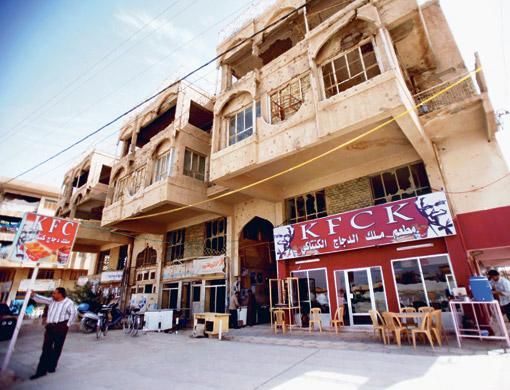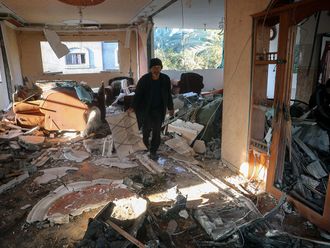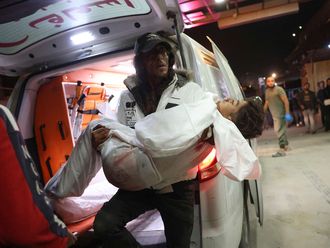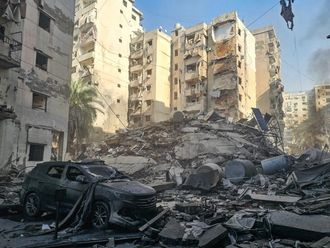Fallujah: The Americans are gone from Fallujah, but the "King of Kentucky Chicken Restaurant" is open for business in a bullet-pocked building.
The city that suffered some of the bloodiest episodes of the Iraq war is back under Iraqi control and bursting with entrepreneurial energy, from music stores and restaurants to workmen digging trenches for a long-delayed US-funded sewage network.
But much war damage remains untended, unemployment runs high, farming has fallen into neglect and there are constant fears that the insurgents who waged war are waiting for the right moment to rekindle the conflict.
This city of 400,000 was the heartbeat of the uprising that followed the US-led invasion of Iraq - notorious for bombings, the killing of 17 people when US paratroopers fired on protesters, and the ambush in which the burned bodies of four Blackwater security company men were hung on a bridge.
In November 2004, with Fallujah in insurgent hands, the US military launched an operation to recapture the city. After 45 days that saw some of the heaviest urban combat for Americans since the Vietnam War, the US announced it had crushed the last pocket of resistance in Fallujah.
Of at least 225 Americans who have died in action in Fallujah since the invasion, 78 were killed in the final operation, according to Pentagon figures. Insurgent losses were estimated at about 1,350.
US forces continued to control the city tightly until last month, when they quit the last of their posts inside Fallujah. Now the city around 48 kilometres west of Baghdad is a testing ground for the Iraqis' ability to keep the peace unaided.
Security is uppermost in people's minds here, their worries heightened by two suicide bombings in the Fallujah area this month that targeted Sunni clan leaders who fought against the insurgents. One of the bombers was thought to have recently been freed from Camp Bucca, the US detention centre in southern Iraq.
Thousands of detainees have been freed from US custody in recent months to comply with a US-Iraqi security pact that took effect on January 1, and there are fears some of them will try to join up with Al Qaida sleeper cells.
"Bucca has reinforced their extremist ideology since the most radical detainees are kept together away from the rest," said Mushtaq Al Eifan, a prominent clan member who fought Al Qaida.
However, Fallujah is relatively calm, though its notoriety appears to endure.
Mayor Shaikh Hameed Hashem says he is struggling to staff to capacity a $46-million (Dh168.8-million), 200-bed hospital just built with government funds because of misconceptions about security in Fallujah. He is promising housing and police protection for out-of-town doctors who agree to work at the hospital.
Meanwhile, as Fallujah recovers some of its traditional vigour as a transport and trade hub, it is feeling pressures of a different sort - falling oil prices.Hashem says his 2009 budget has been slashed by two-thirds to about $43 million because of the slump in oil earnings that underpin government revenue.
With unemployment at about 30 per cent, he said he needs money for industrial and farming projects to create jobs.
Also, he said he needs to build a power station as the government provides only 25 per cent of Fallujah's electricity needs and the rest comes from private generators.
Still, in ways both big and small, the city is struggling back to normalcy. Along with the $100-million sewage network, construction of a stretch of elevated highway appears to be moving ahead.
But some seem unready to put the fighting behind them. Several mosques still show the damage they suffered in the fighting, and Fallujans believe they are being deliberately left in disrepair as protests against what they see as the brutality of the 2004 US offensive.












